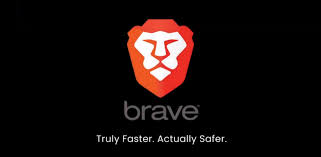Best known as the underlying technology behind cryptocurrencies like Bitcoin, blockchain is a decentralized and secure way of storing and sharing information. And now, marketers are beginning to explore how blockchain can be used to improve transparency, eliminate fraud, and increase efficiency in their campaigns. According to a survey by *Deloitte, 55% of global respondents stated that blockchain technology has become a critical priority for their organizations. A study by *Grand View Research predicts the global blockchain market will reach $57.6 billion by 2025.
What is blockchain technology?
Blockchain is a decentralized, distributed ledger technology that stores data in a secure and transparent manner. The blockchain ledger consists of blocks, each containing a group of transactions that are validated by a network of computers. The validated transactions are then added to the blockchain, creating a permanent and unalterable record of the transaction. Blockchain technology is known for its transparency, security, and immutability.
6 Impacts of Blockchain Technology on Digital Marketing
1. Transparency:
One of the most significant impacts of blockchain on digital marketing is transparency. The technology provides a transparent record of all transactions, allowing marketers to verify the authenticity of their ad impressions and clicks. This transparency can help reduce ad fraud, which is a significant problem in digital marketing.
2. Privacy:
Blockchain technology can also help protect user privacy in digital marketing. The decentralized nature of the blockchain ensures that data is stored in a secure and transparent manner, and the user remains in control of their data. This can help reduce data breaches, which are a common nuisance to be as proactive as possible for now-a-days.
3. Smart Contracts:
Smart contracts are self-executing contracts that can be programmed to execute when certain conditions are met. They can be used to automate digital marketing processes, such as payment processing, ad placement, and campaign optimization. Smart contracts can help reduce costs and increase efficiency in digital marketing.
4. Micropayments:
Blockchain technology can also enable micropayments in digital marketing. Micropayments are small payments made for specific digital services, such as viewing an ad or completing a survey. Blockchain technology can enable micropayments by creating a secure and transparent payment system that allows businesses to pay users for their attention and engagement.
5. Decentralization:
Decentralization is a key feature of blockchain technology. It eliminates the need for intermediaries, such as ad networks and payment processors, in digital marketing. This can help reduce costs for businesses and increase revenue for publishers and content creators.
6. Tokenization:
Tokenization is the process of converting a real-world asset into a digital token that can be traded on a blockchain. Tokenization can help businesses raise funds and reward users for their engagement. For example, a business could issue tokens to users for viewing their ads or completing a survey. The tokens could then be traded on a blockchain exchange, providing users with an incentive to engage with the business.
Case Studies:

1. Brave Browser:
The Brave browser is a privacy-focused web browser that uses blockchain technology to enable micropayments for content creators. Users can earn rewards in the form of BAT (Basic Attention Token) for viewing ads, and content creators can receive BAT for their content. According to the *Brave browser website, over 2.2 million content creators have verified with the platform, and over 34 million monthly active users have been recorded.
2. AdEx:
AdEx is a decentralized advertising platform that uses blockchain technology to eliminate ad fraud and increase transparency. AdEx allows advertisers to create ad campaigns and pay publishers directly, eliminating the need for intermediaries. According to the *AdEx website, the platform has processed over 75 million ad impressions for over 4,600 campaigns.

Conclusion: Blockchain technology brings many possibilities to the table. The transparency and privacy provided by blockchain can help reduce ad fraud and protect user data, which are becoming increasingly popular controls requested by consumers. Smart contracts and micropayments can automate and streamline digital marketing processes, while decentralization and tokenization can eliminate intermediaries and reward user engagement. As seen in case studies such as Brave Browser and AdEx, blockchain technology is already being utilized in digital marketing and will see further adoption. A survey by *Statista shows 24% of US marketers are using blockchain technology for advertising and marketing. The emerging benefits of blockchain make it an exciting development to keep up with.
*Deloitte | https://www2.deloitte.com/global/en/pages/technology-media-and-telecommunications/articles/global-blockchain-survey.html
*Grand View Research | https://www.grandviewresearch.com/press-release/global-blockchain-market
*Brave | https://brave.com/
*AdEx | https://adex.com/
*Statista | https://www.statista.com/statistics/979069/blockchain-advertising-and-marketing-adoption-us/

